10 Natural and Effective Ways to Get Rid of Ants (Plus One to Skip!)

Have you ever faced off with an ant army in your own home? Yeah, it’s not exactly fun. I’ve got your back with top-notch, natural strategies to show those ants the door for good.
Let’s dive into nature’s own toolkit for ant control. We’re talking about simple yet super-effective remedies that are all about outsmarting those little invaders. Ready to turn the tables on ants? Here’s what we’ve got lined up:
🌿 Oil of Lemon Eucalyptus (OLE): This isn’t just a fresh scent; it’s a full-on ant deterrent.
🍋 White Vinegar: It’s more than just a condiment – a surprise ant buster.
💧 Boiling Water: Sometimes, the simplest solutions are the most powerful.
🌽 Cornstarch: The secret weapon you never knew you had against ants.
⭐ And that’s just the start – we’ve got a whole arsenal of clever tips!
Stick with me, and let’s naturally turn your ant problem into an ant solution!
How to Get Rid of Ants from Your Home Using Natural Ingredients
Ants, although tiny, can quickly become a nuisance when an army of them invades your home. With over 10,000 known species of ants globally, homeowners must learn how to deter these pests effectively.
Not all ants are harmful, but certain varieties, such as carpenter, fire, harvester, field, and crazy ants, can damage your home or even bite or sting you and your pets.
Before reaching for harsh chemicals to evict these unwelcome guests, consider this: some store-bought products can be more detrimental than the ants themselves.
So, what’s the solution? It’s time to explore cheap, natural remedies that are gentle on the environment and safer than chemical insecticides.
1. Ground Black or Red Pepper
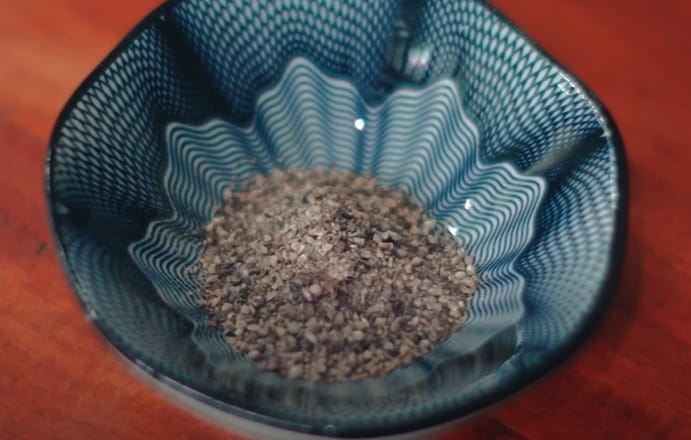
Ground pepper is more than just a kitchen seasoning – it’s my go-to ant repellent. Mountain-dwelling ants have the unique characteristic of detesting any pepper. And the great thing is that black and red cayenne pepper work perfectly well.
Here’s how you do it:
- Step 1: Locate the source of the ant infestation
- Step 2: Once you’ve done that, create a hostile environment for them by sprinkling some ground pepper around the area. You might even want to make a pepper barrier to secure your home against incoming ant traffic.
Alternatively, mix pepper with water and spray it at the ant-prone spots. While this method doesn’t eliminate the ants, it ensures they won’t be making a comeback.
The wonderful aspect of ground pepper is that it doesn’t kill ants, but its strong odor is enough to repel them. Dusting the ground black or cayenne pepper onto ant scent trails can be quite effective.
2. Peppermint
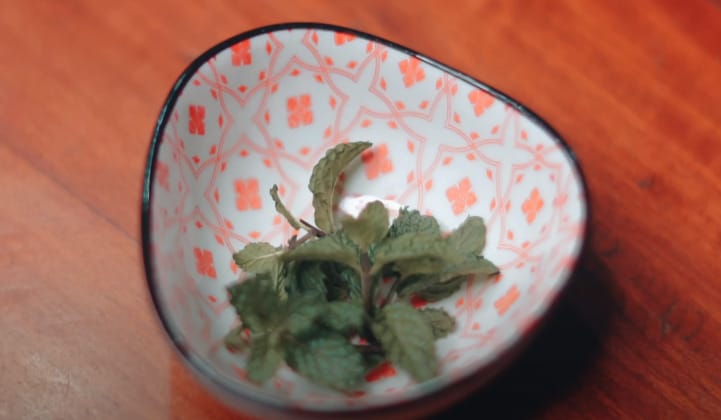
Turns out ants can’t stand peppermint. This aroma-filled plant works like a charm, acting as a natural insect repellant, so I suggest leveraging its inherent qualities.
Let me show you how:
- Step 1: Gather some peppermint essential oil. Mix 10 to 20 drops of this oil with 2 cups of water.
- Step 2: Spray it around your home baseboards and window sills. You know the drill.
Just be sure to keep it away from your pets-especially cats. They might get sick if exposed.
You can always use dried peppermint if the liquid mixture isn’t your style. Better yet, why not take a more charming route and add a minty perimeter? A fresh mint garden around your entryways keeps ants away and adds a soothing aroma to your abode.
3. Tea Tree Oil

Like peppermint oil, tea tree oil is another powerful natural ant repellent. Often, you’ll find this oil at your local grocery or health food store. It’s widely available online, too. Yet, there’s more to this oil than availability.
Tea tree oil is hugely potent against those tiny invaders in your humble abode. Here’s a quick DIY solution with tea tree oil:
- Step 1: Mix 5 to 10 drops with 2 cups of water and put this solution in a clean plastic spray bottle.
- Step 2: Spray it where you usually see ants. You can also soak cotton balls in the solution and place them strategically around your home.
It’s important to remember to use essential oils like tea tree oil safely. Therefore, always dilute essential oils properly and keep them out of reach of pets and children.
Furthermore, observe reactions or sensitivities when using them around those with respiratory conditions. Stop using immediately and consult a healthcare professional if there are any adverse effects.
4. Oil of Lemon Eucalyptus (OLE)

While they might sound alike, there’s a distinct difference between lemon eucalyptus essential oil and Oil of Lemon Eucalyptus (OLE).
It might interest you that OLE is derived from Australia’s native gum eucalyptus tree. One of its unique features is the presence of a certain P-Menthane-3,8-diol (PMD).
Now, what’s so special about PMD, you ask? Let me tell you. It’s effective in repelling insects and is certified as a biopesticide by the Environmental Protection Agency (EPA). So, it’s safe to use and particularly beneficial in our quest against ants.
Here is the step-by-step procedure:
- Step 1: Start with an undiluted lemon eucalyptus essential oil on cotton balls.
- Step 2: Place these in areas where you constantly find the ants sneaking up.
A quick tip: change these cotton balls weekly. And remember, as much as we like OLE, it’s not meant for ingestion, and it’s best to keep it away from kids and pets.
5. White Vinegar: An Unexpected Ally
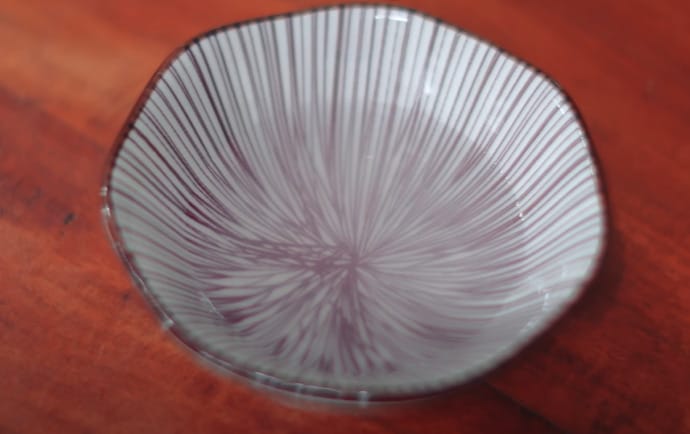
White vinegar – it’s got a whole lot more than what meets the eye. Don’t underestimate the potential of this common household item in your war against ant invasion.
It’s time to understand how to unmark territories previously claimed by ants using this vinegar magic.
Were you mystified about how to utilize this natural remedy? Here’s a simple solution.
- Step 1: Mix a 50:50 solution of white vinegar with water in a spray bottle.
- Step 2: Treat your countertops, window sills, doorways – wherever you’ve noticed an ant party before. We must break those scent trails and ward them off.
Some of you might wonder, won’t pure vinegar be more effective? It’s true; depending on your tolerance level, you could use a 50/50 mix or even pour 100% vinegar.
Ensure to arm yourselves with these vinegar tips daily or as often as needed, but remember to be cautious around pets or sensitive areas.
6. Boiling Water

Turn on that stove and grab a pot because boiling water is a natural ant-killer that gets straight to the source. While the aroma and substances from essential oils or vinegar can deter ants, boiling water is the natural remedy that targets the colony itself.
- Step 1: Once you bring a pot of water to a roaring boil, carefully pour it onto the ants’ mound. However, be wary – despite its benefits, manually carrying boiling water can be dangerous, so safety is key.
- Step 2: Increase the effectiveness by adding water-soluble insecticides, essential oils, or soap. This might seem aggressive, but trust me, it’s effective!
If the troublesome ants have created holes near your lovely abode, pour boiling water into them. Anthills may look small, but don’t be fooled by their modest appearance – the colony hiding beneath is typically vast.
7. Cornstarch: The Unlikely Ant Killer
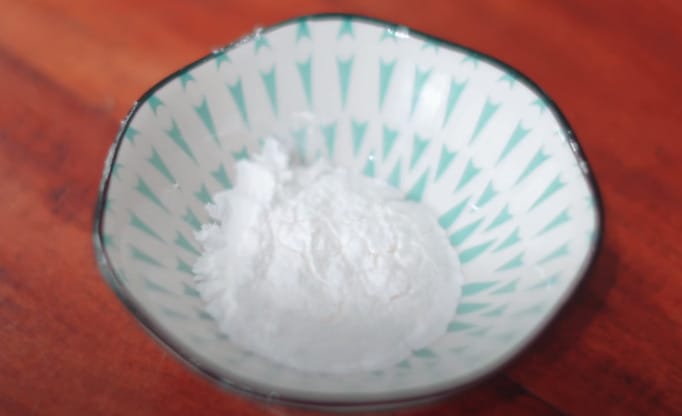
Let’s shake things up a bit. Enter Cornstarch, a fine powder we all probably have sitting in our kitchen cabinets. Not only can it make thick soup and satin-smooth sauces, but it’s also a silent yet effective killer of ants.
There are two easy methods to deploy this everyday ingredient.
The first method is pouring cornstarch over the ants liberally and then hitting them with water. The aftermath: those little invaders become encased victims you can easily clean up.
The second method involves smothering the ants with cornstarch and vacuuming them up. Just remember to seal and toss the vacuum bag outdoors right away.
So, make that pantry work harder instead of reaching out for a can of toxic spray. Always remember to be persistent and tweak your methods as needed. After all, we’re dealing with one of nature’s most resilient creatures.
8. Coffee Grounds: An Unexpected Ant Antidote
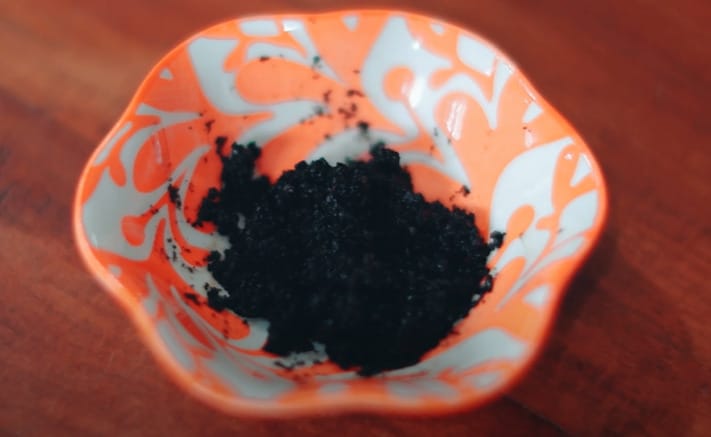
Don’t rush to throw out your used coffee grounds just yet! It turns out they’re more than just waste.
The potent smell of brewed coffee grounds works magic in deterring those pesky ant invaders. The strategy is simple.
Sprinkle some used coffee grounds on disposable surfaces, such as cardboard. Place these makeshift repellents in areas where the ants frequent – perhaps around the ant nests or points of entry.
What’s wonderful about this remedy is its versatility – use it indoors or outdoors to suit your needs. Thanks to their mineral content, these nuisance-battling grounds double as nutrient-rich soil enhancers, a win-win for your garden and home.
9. Cinnamon and Clove Oil
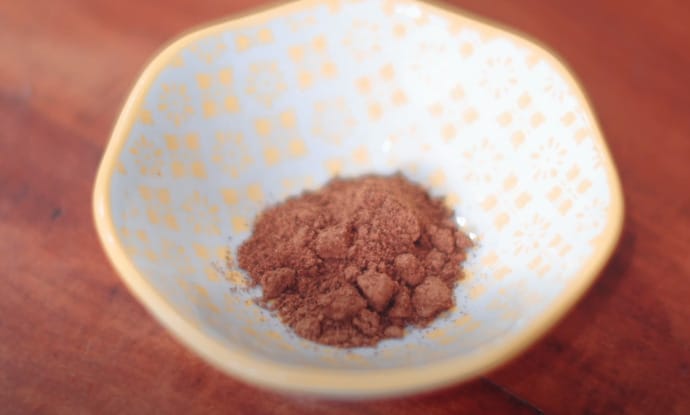
Are you dealing with an uninvited ant parade in your home? Well, I’ve got a natural and fragrant solution for you: cinnamon and clove oil. This dynamic duo smells great and works wonders in keeping those pesky ants away.
With a few simple steps, you can use these common household items to create an effective barrier against ants.
- Step 1: Grab some cinnamon powder. Sprinkle it generously around areas where you’ve seen ants or at potential entry points. This spice isn’t just for cooking; its strong scent is a natural deterrent for ants.
- Step 2: Clove oil is your secret weapon here. It’s not just fragrant; it contains eugenol, a natural insecticide. Soak a few cotton balls in clove oil and strategically place them in areas prone to ant invasions, like windowsills or near doorways.
- Step 3: Keep an eye on these areas and reapply the cinnamon and clove oil as needed.
Sometimes, it takes a little persistence, but soon enough, you’ll notice a significant decrease in ant visitors. Plus, your home will have a pleasant, spicy aroma!
10. baking soda and Powdered Sugar

Hey folks, ready for a clever trick to deal with those pesky ants? Enter the dynamic duo of your kitchen: baking soda and powdered sugar. This combination is like a superhero team for ant control – it’s safe, and you probably already have these ingredients in your pantry.
- Step 1: Take equal parts of baking soda and powdered sugar and blend them together. This mix is a clever trap: the sugar lures the ants in, and the baking soda takes them out.
- Step 2: Now, scatter this sneaky mixture near where you’ve spotted those ant trails. They can’t resist the sweet sugar, but the baking soda is their undoing. Keep an eye on the bait and replenish as needed. You’ll be saying goodbye to those ants in no time!
Remember, the key is persistence and regularly monitoring your sweet little traps. With this simple yet effective method, you’ll reclaim your space from those tiny invaders.
11. Citrus Peels
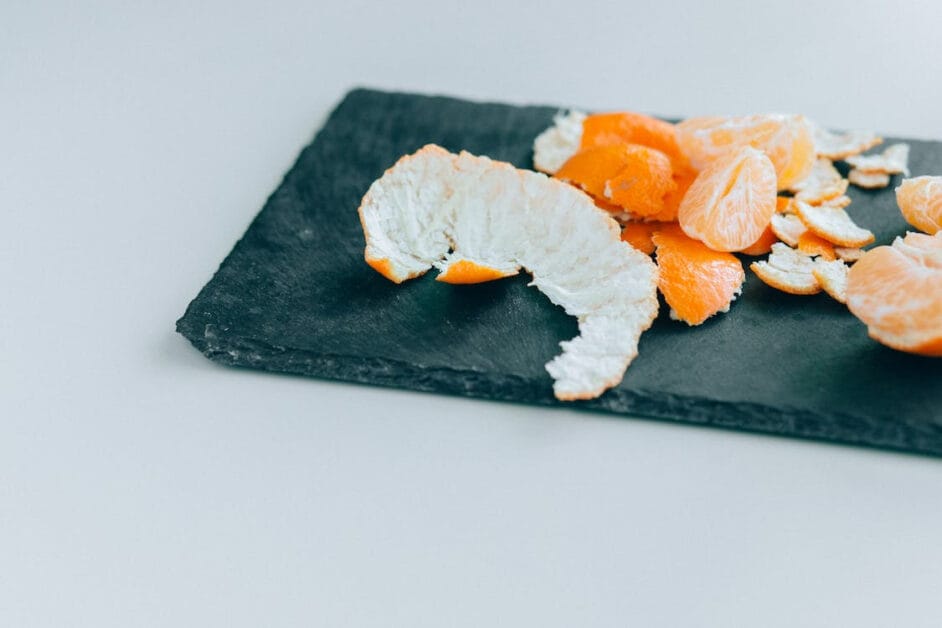
Here’s a bright idea for those battling ant invasions – citrus peels! Those leftover peels from your oranges and lemons are more than just compost.
They’re packed with natural compounds that ants can’t stand. The vibrant scent and the oils in the peels work like a charm in keeping those little critters at bay. It’s all about using what nature gave us.
So, next time you’re enjoying some citrusy goodness, save those peels and put them to work as your natural, fragrant defense against ants. Let’s turn your citrus scraps into an ant-repelling force!
When Natural Methods Aren’t Enough
In certain cases, I’ve found that no matter how diligent you’ve been with your anti-removal strategies, there’s the possibility that they will continue to march all over your territory.
In moments like these, you might have to embrace more serious measures. You’ll need to leverage the power of chemical pesticides if your ant issues push past unbearable.
Occasionally, you’ll find that even the best pesticides can fall short. Complex situations like these, where those pesky critters seem to stick around for no apparent reason, call for the intervention of a professional pest controller.
Remember that specialists in eco-friendly or organic pest control methods are available to provide targeted solutions and can do so while minimizing environmental impact.
Preventive Measures: Keep the Ants Out Before They Invade
Preventing an ant invasion is just as crucial as getting rid of them. It’s all about taking proactive steps to make your home less appealing to these tiny invaders.
Here’s a rundown of some smart, simple habits that can significantly reduce the likelihood of an ant infestation:
- Seal Up Food Sources: Ants have a nose for food, especially the sweet stuff. Always store your food in airtight containers. This includes pet food – don’t leave Fido’s dinner out all night. Regularly clean up crumbs and spills because even a tiny morsel can feast on ants.
- Eliminate Moisture and Standing Water: Ants are not just after food; they need water too. Fix leaky faucets and ensure your drainage systems are working correctly. Pay special attention to kitchens and bathrooms, as these areas are prone to moisture.
- Seal Entry Points: Conduct a thorough inspection of your home for any cracks or crevices that ants could use as entry points. Seal these up with caulk or another appropriate material. Don’t overlook the small gaps; ants can squeeze through incredibly tiny spaces.
- Keep the Yard Tidy: Your garden can be an ant haven. Regularly trim bushes and trees that touch your home’s exterior to prevent ants from using them as bridges—clear debris and mulch from your home’s foundation to avoid creating moist environments that ants love.
- Dispose of Garbage Properly: Ensure your trash cans have tight-fitting lids and are emptied regularly. If possible, keep them at a distance from your home. Decomposing garbage can be a prime attraction for ants.
Incorporating these practices into your routine can greatly diminish the chances of an ant infestation. Remember, prevention is always better than cure, and in this case, a little effort goes a long way in keeping your home ant-free.
References
Organizations:
- Entomological Society of America. http://entsoc.org/
- National Pest Management Association (NPMA). http://pestworld.org/
Website Resources:
- The Spruce. https://www.thespruce.com/
- Gardening Know-How. https://www.gardeningknowhow.com/
- Mother Earth News. https://www.motherearthnews.com/
Video References:
AntsCanada
11 Alive
Natural Health Remedies
